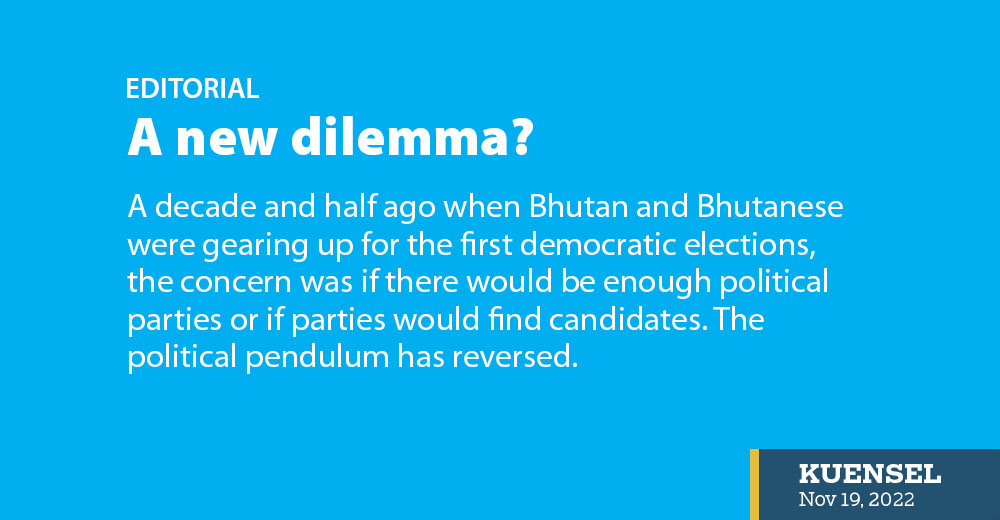A decade and half ago when Bhutan and Bhutanese were gearing up for the first democratic elections, the concern was if there would be enough political parties or if parties would find candidates. The political pendulum has reversed.
With the confirmation of another political party joining the fray to contest the 2023 elections, we have now six political parties, enough to make some believe that there are too many political parties for a small country and population.
The slow start to politics and political parties was understandable given the uncertainties the transition presented. 15 years after the transition and with six political parties, we are spoilt for choices.
However, our voters have matured. They cannot be swayed by the promises of roads, bridges or subsidies. They have learnt that all that glitters is not gold.
The details of the latest political party is sketchy except that they will register and have 70 percent of the candidates identified. What is sketchier is party ideologies. In most democracies, political parties are known by their ideologies making it easier for voters to choose or support a party. Quite often, it is the aggregation of views or having similar ideologies or political philosophies. In other words, political parties are identified as conservatives, leftist, socialist or liberals.
Our political parties try to align their mandates to the Five-Year Plans and the bureaucracy tries to adjust the development plans to their manifestos or pledges. In short, whatever the number, what difference a political party could bring is determined by what our Five-Year Plans prioritise.
Beyond that it is still the personality that shapes political parties. This is evident from political parties being cautious in choosing the leadership. Smart politicians have studied the voting pattern and know how to win votes. But winning votes alone will not make a political party successful or good for the people and the country.
However, as the momentum picks up, many are wondering where the potential candidates and party workers are going to come from. If all the six parties qualify to contest the primary round, the requirement is 282 candidates. Our election rules mandate a political party to ready all the 47 candidates to even get registered.
The National Council where members end their tenure soon is a happy hunting ground to the extent that it is rumoured that the new political parties have many councilors as its confirmed members. Who the political parties choose will remain a secret until the election period, but what we see is change or transformation in our political arena.
What many would expect is a political party that can live up to the changes and the transformation happening in the country and beyond. Some are concerned with the election cost. As long as we get a good political party to lead the country for the next five years, cost is secondary. How good a political party is, is subjective and who gets elected to govern still lies with the voters.
The ball, in other words, is in the hands of the voters.


